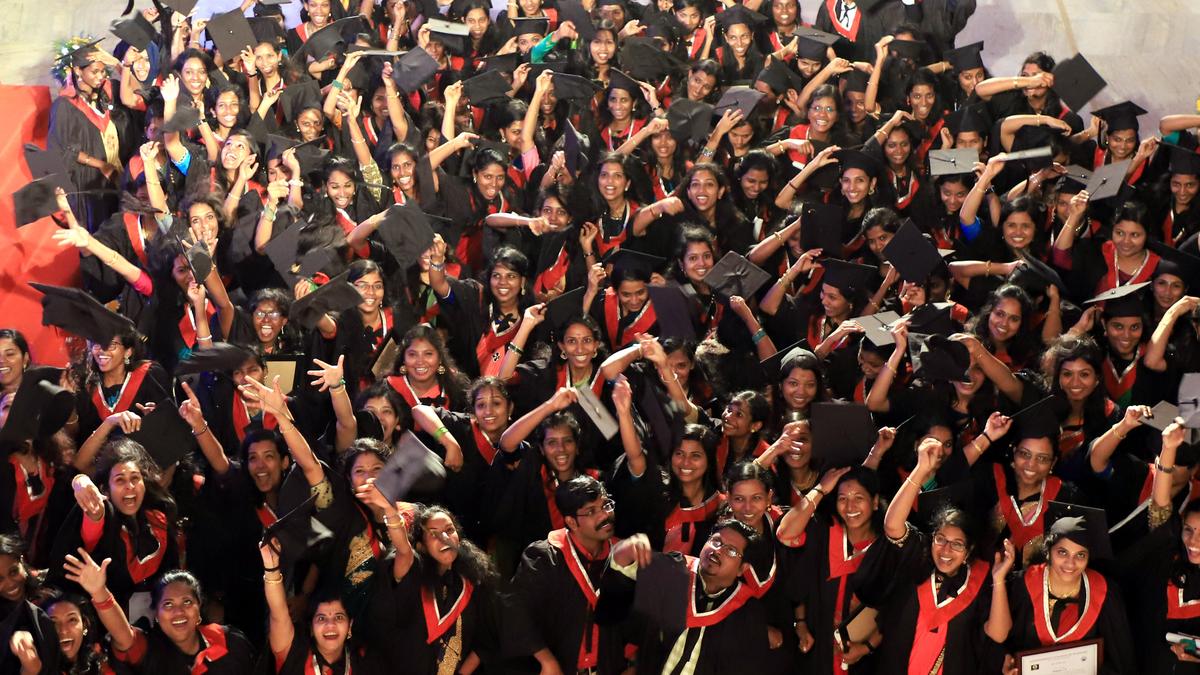
The changes Kerala’s new four-year degree courses are expected to usher in | Explained Premium
The Hindu
Kerala introduces four-year undergraduate programs to equip students with digital skills and flexibility in learning pathways. A look at the changes this is expected to usher in
The story so far: Institutions of higher education in Kerala rolled out four-year undergraduate programmes (FYUP) on July 1. Kerala Chief Minister Pinarayi Vijayan formally launched the academic reform that “intends to provide opportunities that can enable students to acquire competence in using digital technologies, computational methods, data analytics, and other skills essential to participate in the knowledge economy”.
It began with the formulation of Kerala State Higher Education Curriculum Framework for FYUP by the Kerala State Curriculum Committee headed by Suresh Das, former Executive Vice President of the Kerala State Council for Science, Technology and Environment. A model regulation for FYUP was prepared by the Kerala State Higher Education Council (KSHEC) for the universities in the State. The programme has been introduced in the affiliated colleges of the Kerala, Calicut, Kannur and Mahatma Gandhi Universities for the 2024-25 academic year. The five-year integrated programmes directly run by the Cochin University of Science and Technology and Mahatma Gandhi University have also been restructured to provide a four-year exit option. Similarly, Sree Sankaracharya University of Sanskrit, Kalady, and Thunchath Ezhuthachan Malayalam University, Tirur, are also offering the programmes.
The framework is formulated with a student-centric approach and provides maximum flexibility in terms of choice of disciplines of study. It also allows to move from one discipline of study to another, according to the KSHEC. It has the options for developing various academic pathways by a creative combination of disciplines of study. The students will have the chance to determine their semester-wise academic load and will be allowed to learn at their pace, to the extent possible. The framework offers flexibility for the students to move from one institution to another. It also offers the flexibility to switch to alternative modes of learning (offline, open and distance learning, online and hybrid modes of learning).
Three-year undergraduate degree: students who wish to exit after three years of a four-year degree programme will be awarded undergraduate degree in the major discipline after the successful completion of three years, securing specific number of credits (133 or above) and satisfying the minimum course requirement.
Four-year undergraduate degree (Honours): a four-year undergraduate Honours degree in the major discipline will be awarded to those who complete a four-year degree programme with the specific number of credits (177 or above) and have satisfied the minimum course requirement.
Four-year undergraduate degree (Honours with Research): Students who are highly motivated to opt for research as their career can choose honours with research stream in the fourth year. They should do a research project or dissertation under the guidance of a faculty member of the university/college. Students who secure 177 credits, including 12 credits from a research project/dissertation, are awarded the undergraduate degree (Honours with Research).
The core objective of the undergraduate curriculum stemmed from the government’s intent to build a strong knowledge society that can help develop and sustain a knowledge economy. The Department of Higher Education hopes that the reform will equip students with the knowledge base and intellectual abilities that will make them effective citizens in a knowledge society and offer them multiple employment options.













